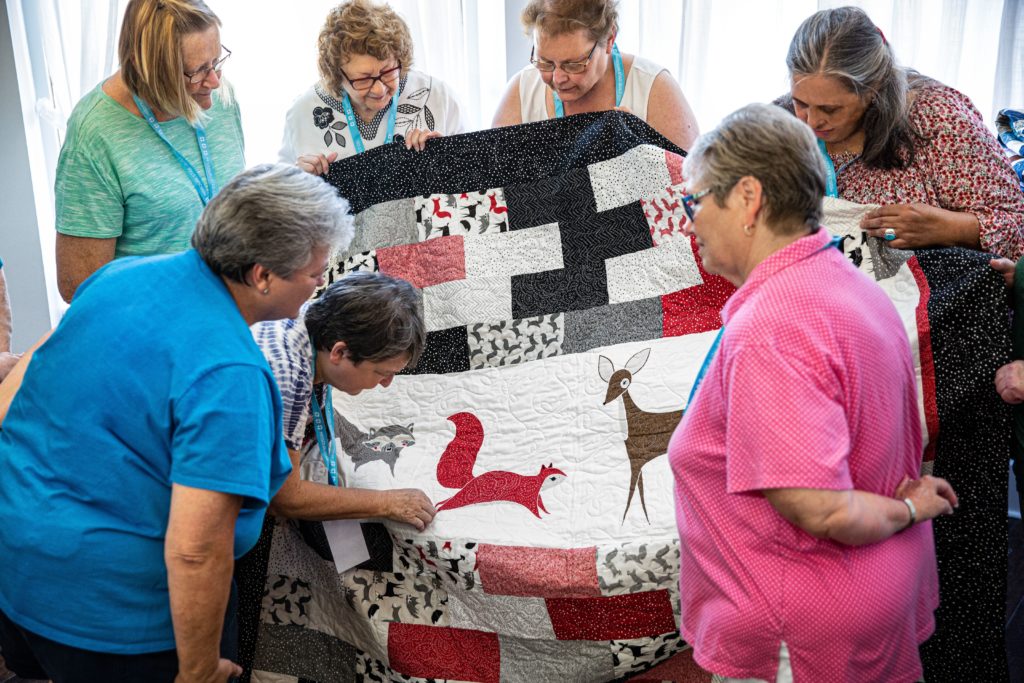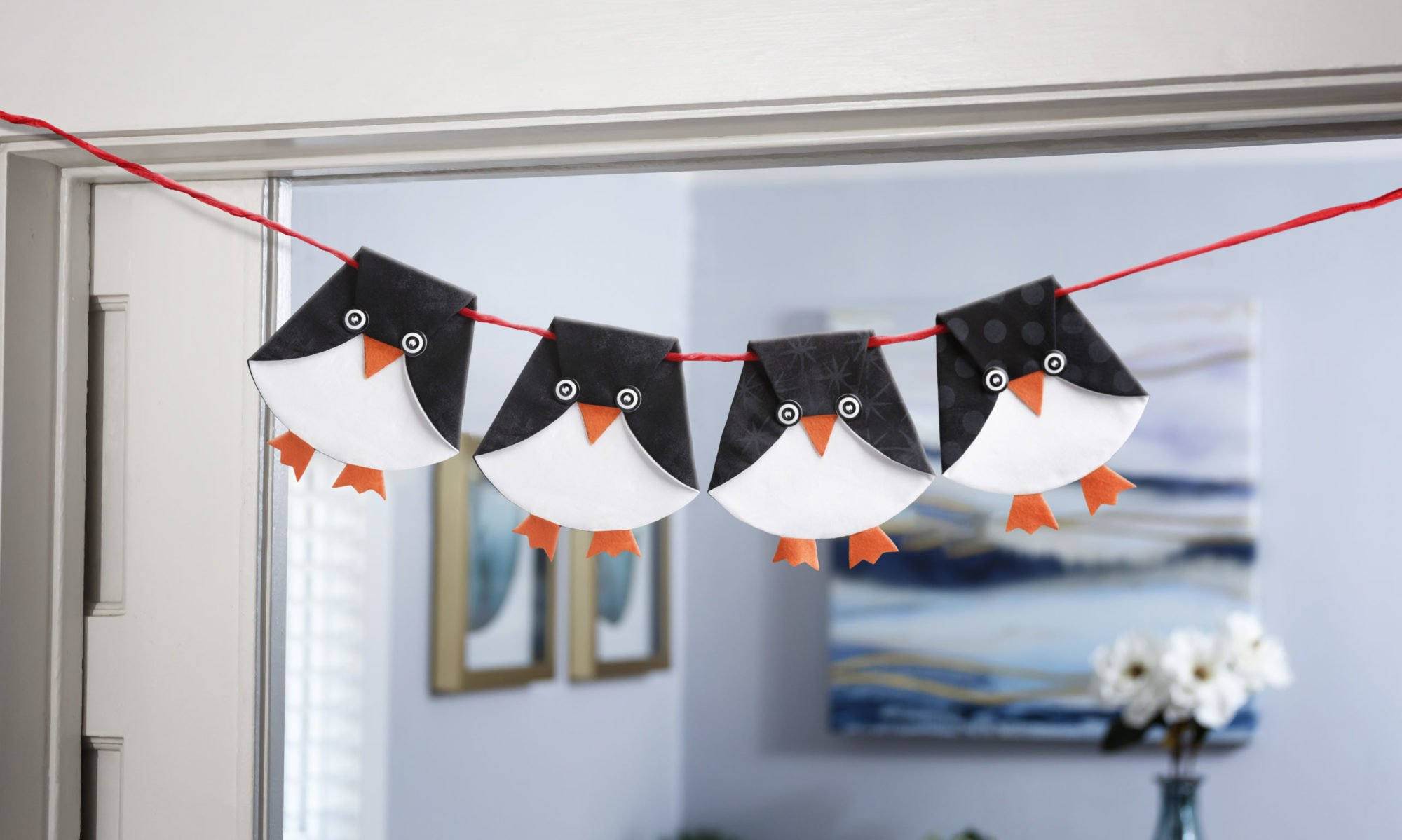
Everyone has their own journey when it comes to quilting. Many of us were fortunate enough to have quilting passed down to us traditionally from our family members; learning the basic motions of cutting and sewing from the careful hands of those who once had to quilt from necessity. Others however are just finding their path. The technological boom of quilting videos and tutorials that has developed within the last decade has allowed many people to acquire skills which were once only taught by those close to us. Regardless of how we began our journeys as quilters, the skills learned have more benefits than you may realize.
A Healthy Activity
Quilting as a health based activity is becoming more widely recognized with an influx of scientific research claiming that the act of quilting, or crafting in general, is a therapeutic skill which is ripe with health benefits. From a recent study published in the Journal of Public Health:
Cognitive, emotional and social processes were uncovered, which participants identified as important for their wellbeing. Participants found quilting to be a productive use of time and an accessible means of engaging in free creativity. Colour was psychologically uplifting. Quilting was challenging, demanded concentration and participants maintained and learned new skills. Participants experienced ‘flow’ while quilting. A strong social network fostered the formation of strong friendships. Affirmation from others boosted self-esteem and increased motivation for skill development. Quilts were often given altruistically and gave quilting added purpose.
Whether we’re quilting from the comfort of our own home, or working with others to finalize a more demanding project, the benefits of quilting are abundant for one’s personal wellbeing. As we age, our health care routine becomes more poignant and critical than it once was and in today’s society we’re often faced with a fast paced and stressful agenda that leaves little room for personal growth. Social organizations and physical activities are often promoted from medical professionals in order to relieve these stressors and to continue cognitive functions as we begin to enjoy our golden years.
The Best Social Club
Quilting has long since been a social activity. Before the luxuries of machine quilting and personal home sewing machines, quilts were often stitched by hand at local quilting bees. Judy Anne Breneman notes that this allowed the participants to engage in a dynamic social activity which helped overcome the loneliness that many experienced while living in isolated, rural communities. While few of us still live in such isolated communities, the concept of quilting as a social activity still rings true today. Many quilters still participate in quilting bees; many now are even part of a larger quilting guild which organizes meetings for its members. Quilting retreats and events offer the opportunity for maker’s to share their experience with others while continuing to build their personal skill sets in a social and engaging atmosphere. Online quilting groups have also provided such an outlet, allowing makers from all over the world to connect with others to discuss their craft from the convenience of their own homes.
This sense of community has become empowering to makers, allowing an open space to discuss projects and praise the ingenuity of others. With community comes purpose, and a sense of purpose often develops within quilters that allows them to combat mental health issues. Clare Hunter in “The calming effects of sewing can help people express and heal themselves” from The Guardian says, “Sewing is increasingly becoming recognised as an effective way to combat depression, the absorption demanded by needlework – its flow – calming the mind and reducing stress. The sense of accomplishment can boost mental health and improve our immune system, as relief from the pressure of multitasking is replaced by focussing on one thing.”
Finding our Purpose
To what ends though can we identify ourselves as quilters? Following retirement, many adults tend to struggle with finding their purpose. After spending the majority of one’s life consistently contributing towards a goal through a career, it is sometimes difficult, and reasonably so, to find a purpose in what is supposed to be our best years. The introduction of hobbies to provide a much needed outlet in order for someone to develop a purpose has been attributed to numerous health benefits; we engage ourselves and find pleasure in creating and it directly affects our well being. A 2016 study from the Journal of Epidemiology suggests that, “having hobbies and PIL [Purpose in Life] may extend not only longevity, but also healthy life expectancy among community-dwelling older adults”. The best part about all of this though? Quilting is fun! Few of us originally find quilting as a means of self-medication and mental health stimulation, but we all have the opportunity to reap the rewards all while enjoying one of our favorite past times.
As makers, we have many titles. Whether we identify as creators, quilters or artists, it is hard to argue the benefits that quilting brings into our lives. If the opportunity to make something of your own, or to make a gift for someone in need wasn’t enough, it is evident that the intrinsic benefits of craftsmanship are well worth the investment. There are plenty of great resources available as well for those who do wish to quilt for a cause and give back to their community. So keep those needles to the fabric and remember during your next creative project that not only are we making something to share with the world, but we’re taking care of ourselves in the process.
So tell us, how has quilting benefited your life?




